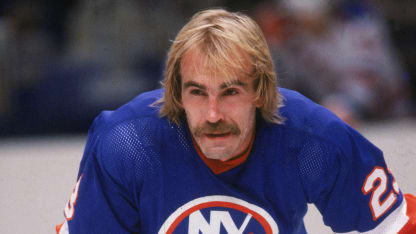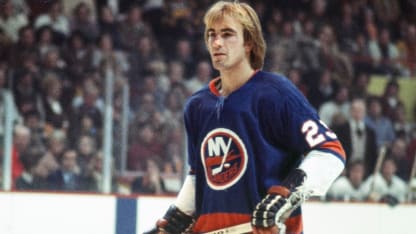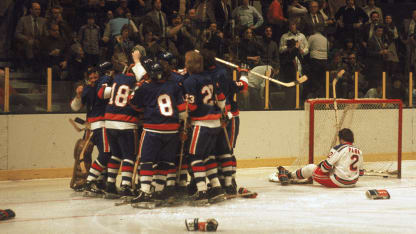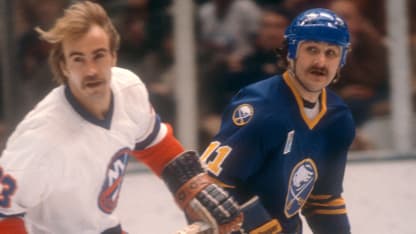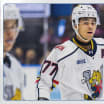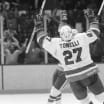As part of the 40th Anniversary of the Islanders 1980 Stanley Cup, NewYorkIslanders.com is celebrating the men and moments from the first Cup run. Today, Stan Fischler with the first of a three-part series on Bob Nystrom.
Were it possible to take a medieval knight and turn him into a hockey player, Bob Nystrom would be that man in shining armor.
Ever since the iconic right wing stepped on Nassau Coliseum ice, there's been an aura about him that only can be equated with heroics and determination.
"Bobby Ny was -- and is -- the most intensely fierce competitor I've ever known," says 1980 Olympic hero and four Islanders Cup-winner Ken Morrow, the team's long time Director of Pro Scouting.
Such kudos are endless and all come from the heart because if anyone in National Hockey League annals played with his ticker operating at "full" all of the time, this Swedish native was it.
Call Nystrom what you will -- dauntless, daring, determined, take your pick of adjectives -- it all comes down to Bob becoming the face of the Islanders franchise. The "Peoples' Player" on The Peoples' Team.
"He was there at the start during our toughest times," General Manager Bill Torrey once said, "and he was there for the glory days."
Were there such a title as Mister Islander it would fit Nystrom like a Brooks Brothers suit.
"He was truly a very unique player," says Glenn (Chico) Resch, both a teammate and then foe of Nystrom. "You could not pigeon-hole him as a 'this' or 'that' kind of guy because he could everything. And I do mean everything!"
If there was one facet of the Nystrom personality that defined his game it was a relentless work ethic which he learned from his parents who brought him from Stockholm, Sweden to Canada when he was four years old.
He began seriously to translate that dynamic known as "Swedish Steam" as a teenager skating for the (Junior) Calgary Centennials. The prodding of pushy coach Scotty Munro inspired a point-counter-point reaction from young Bob.
"Munro kept telling me I'd never make it as a big-leaguer," Nystrom remembered. "Scotty told me, 'You might be a good minor leaguer if you fight more."
"Munro was a tough customer and I'm not sure whether he was using reverse psychology or not but I certainly was pissed off at him."
The trick here was for Ny to convert his anger at the coach into a motivating tool and it worked. Bob was the first player drafted off the Centennials. Ironically, Munro was the first to congratulate him on his drafting success.
Matthew Blittner author of "Unforgettable Islanders" reflected that Munro knew what he was doing with the application of tough-love on Nystrom.
"The motivation worked," said Blittner, "because -- as we have seen over the decades -- Nystrom's name has become synonymous with the Islanders success."
But in 1972 when the NHL Amateur Draft was taking place young Bob wasn't paying attention. He was too busy working for a construction company framing houses in Kamloops, British Columbia.
Sportscaster Allan Hahn, author of "Birth of a Dynasty: The 1980 New York Islanders," found it amusing that Nystrom didn't even consider attending the draft.
Hahn: "Bob's father called him that night to tell him he had been drafted by the New York Islanders. 'Who are the New York Islanders?' he replied."
Ny would find out soon enough and once he signed on with Bill Torrey's spanking new franchise he learned that the good times would not come easy.
Jim Devellano, Torrey's top scout was with Bow Tie Bill on scouting expeditions and remembered how impressed the high command was with Nystrom's spirited play with Calgary.
"We liked Bob's feistiness in junior and felt he had potential," said Devellano who also was alongside Torrey at their first Amateur Draft in 1972. "The idea was to have him get experience with our farm team in New Haven."

